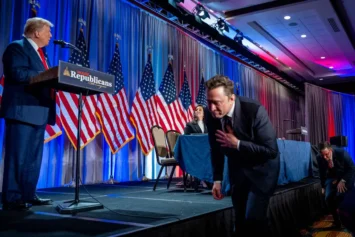Tesla Motors (TSLA) CEO Elon Musk has fired back at The New York Times, releasing vehicle logs that contradict the Times’ recent story about a road trip in a Model S Sedan and calling on the venerable news organization to “investigate the article and determine the truth.”
Last week, New York Times reporter John Broder published a lengthy account of his trip from Washington, D.C. to Connecticut in a Model S that ended with the electric vehicle being towed. Broder reported that the car’s range fell far faster than he expected, forcing him to turn down the heat and set cruise control to just 54 miles per hour. Broder says the car ultimately “shut down,” forcing a tow truck to rescue him from a Connecticut exit ramp.
Musk, who is livid about the article, published a lengthy blog post late Wednesday titled “A Most Peculiar Test Drive.” Based on data pulled from the Model S’s on-board computer, Musk writes that Broder never ran out of energy during the drive, never set the cruise control to 54 miles per hour and kept the heat on. He also writes that Broder took a detour through downtown Manhattan to give his brother a ride, drove the car in circles in a small parking lot and didn’t allow the vehicle to fully charge.
“The final leg of his trip was 61 miles and yet he disconnected the charge cable when the range display stated 32 miles,” wrote Musk in the blog post. “He did so expressly against the advice of Tesla personnel and in obvious violation of common sense.”
Tesla’s communications team originally pitched the road trip to the Times as a way to showcase the company’s newly installed Supercharger stations on the East Coast. The Palo Alto-based company takes great pains to cultivate journalists and protect its formidable brand, and the high-profile dispute is high-stakes as the company ramps up production of the Model S and prepares for next week’s quarterly earnings call with Wall Street analysts.
Broder was in contact with Tesla throughout his trip, and Musk called Broder last Friday, before the article appeared online, to offer regrets about the outcome of the test drive.
But then the tone turned nasty. Musk attacked Broder via Twitter on Monday, calling the article a “fake,” and called Fox Business News Tuesday, saying The New York Times was deliberately trying to write a negative article and “gain a picture of a Model S on a flatbed truck”…
Read more: mercurynews.com


